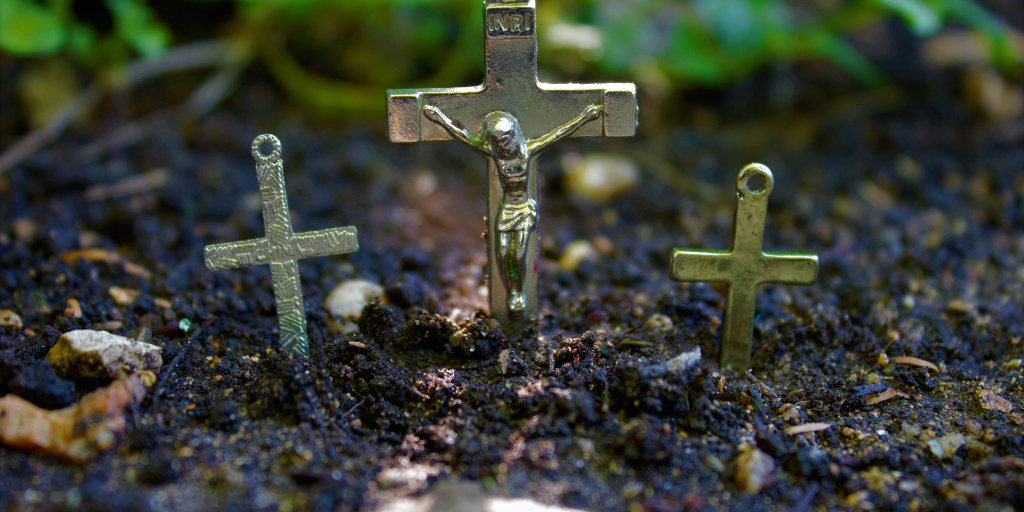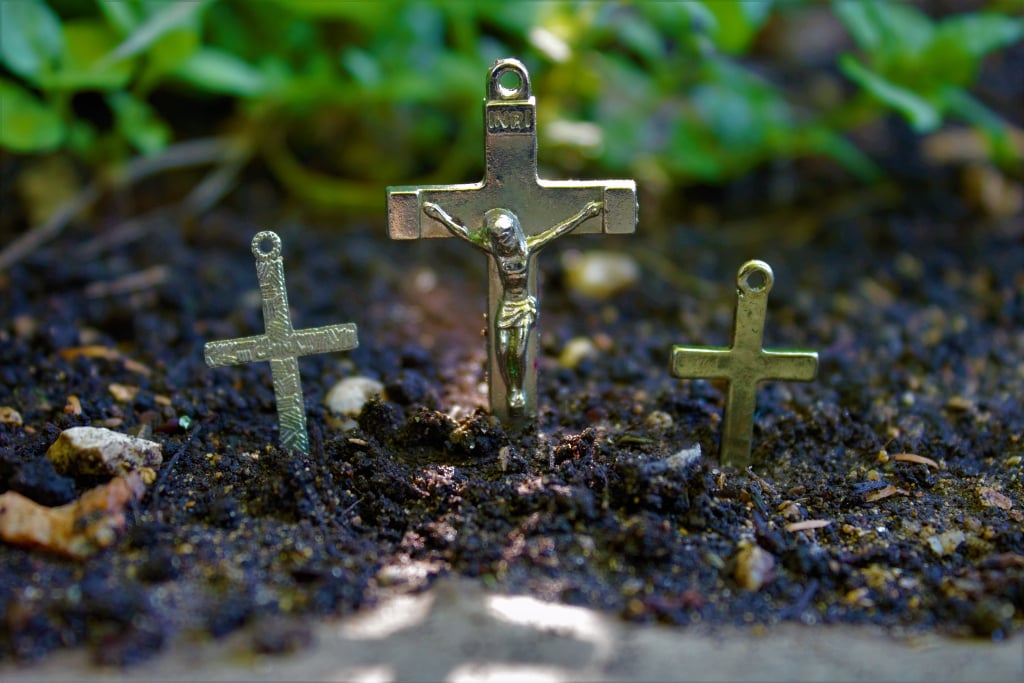
Laura Nelson offers tips for talking to children about Good Friday and simple strategies for setting the day apart.
Do you struggle to find ways to observe Good Friday with your young family? It’s true that Holy Thursday (everyone can relate to a meal with friends) and Easter Sunday (who doesn’t like a party?) are much more “comfortable” for us, whereas Good Friday is definitely uncomfortable. The brutal torture that Jesus went through leading up to His Death on the Cross is too much for many adults to bear much less young children.
For good reason, we don’t want to scare our children by exposing them to the violence, brutality, and sadness of Good Friday. But, if we leave that part out of the Easter story, we’re missing a BIG part of the message of Easter.
It’s not about IF you observe Good Friday with your children, it’s about HOW.
As the Director of Children’s Catechesis at my parish for the past six years, I’ve learned a few things about talking to kids about Easter.
- Always talk about Christ’s death and Resurrection as one event. This principle comes directly from the writings of Sofia Cavaletti and the methods of the Catechesis of the Good Shepherd approach to children’s catechesis. We never “leave” the preschool or elementary age child with Christ’s death. We always say, “when Jesus died and rose.”
- Don’t focus on the gory details of Christ’s Passion unless your child is asking questions about it. Even then, just state the facts. “Pilate ordered that Jesus be whipped before He was crucified.” “The soldiers were mean to Jesus and made fun of Him.” and so on. While it’s very important to know that Christ’s death was extremely painful and torturous, for children it’s enough to state the facts without too much detail. The older they are, the more detail they can handle.
- Children know what it means to be sad. Don’t underestimate your child’s emotional experience. Most can relate to feeling sad, experiencing loss, people being mean to them, and even being betrayed by a friend. Just because their experiences may seem trivial to you doesn’t mean they are trivial to your child. They can relate to the things Jesus went through in their own way. Don’t be afraid of talking about those feelings with them.
In addition to these ways to talk about Good Friday, give your children some concrete ways to make Good Friday different from any other day. For instance:
Food
Of course, we eat differently on Good Friday than other Fridays in Lent. On Good Friday, like Ash Wednesday, we eat small meals and no snacks between them in addition to abstaining from meat. Consider eating more simply on Good Friday than on a typical Friday in Lent. Have scrambled eggs or bean soup for dinner instead of fish or cheese pizza. Make sure the food is palatable to them but also not extravagant.
Prayer
If possible, pray the Stations of the Cross with your children at your parish or even at home. There are many children’s versions of the Stations that speak to the spiritual development of children. A quick internet search will give you many options to choose from that tell the story of Christ’s Passion in a way that works for your child.
Daily Activity
Consider abstaining from entertainment between noon and 3 PM on Good Friday in memory of the hours that Jesus hung on the cross. It could be a time of reading the Bible and praying together, or it could just be quiet family time spent going for a walk or preparing food in advance for the Easter celebration. And, depending on your child’s age, you can adjust how you present this to them. It could range from “We’re going to give this part of our day to Jesus instead of to the TV” to “We’re going to offer up a sacrifice to Jesus just like He offered to us on the Cross.”
All this being said, you know your children better than anyone else. Follow your instincts but don’t be afraid of Good Friday. Without it, we don’t have Easter Sunday.

Copyright 2021 Laura Nelson
Image: Maricela Collins, OneSecretMission.com, Public Domain
About the Author

Laura Nelson
Laura B. Nelson is a Catholic wife and mother of three children. She is also a Catholic author, speaker, Catechesis of the Good Shepherd catechist, and full-time Coordinator of Children's Faith Formation. Laura likes to be busy but she most enjoys spending time with her husband and three children at their home in Grapevine, Texas. Find out more about Laura at LauraBNelson.com.


.png?width=1806&height=731&name=CatholicMom_hcfm_logo1_pos_871c_2728c%20(002).png)
Comments